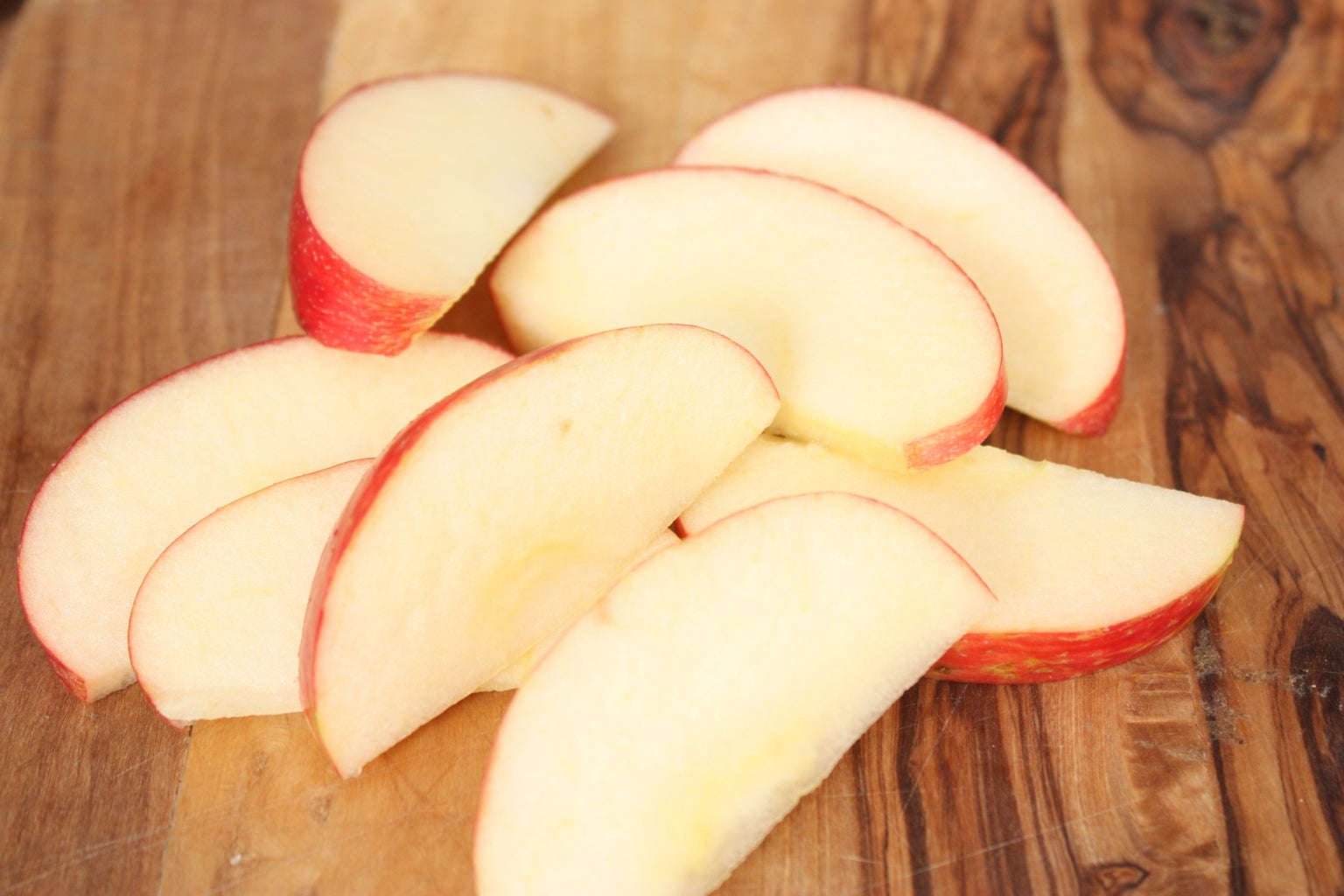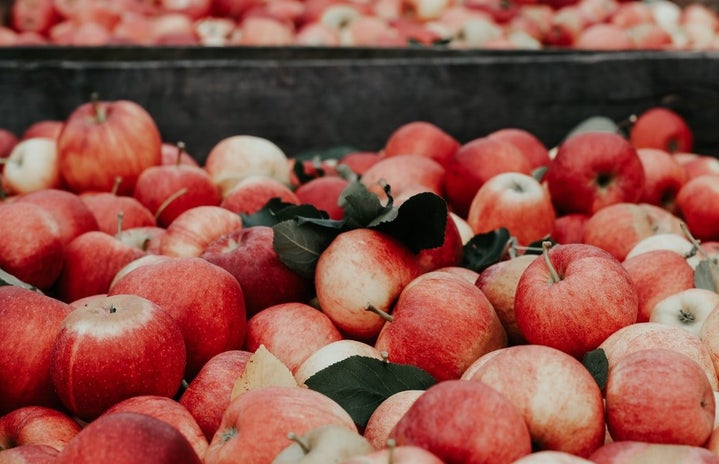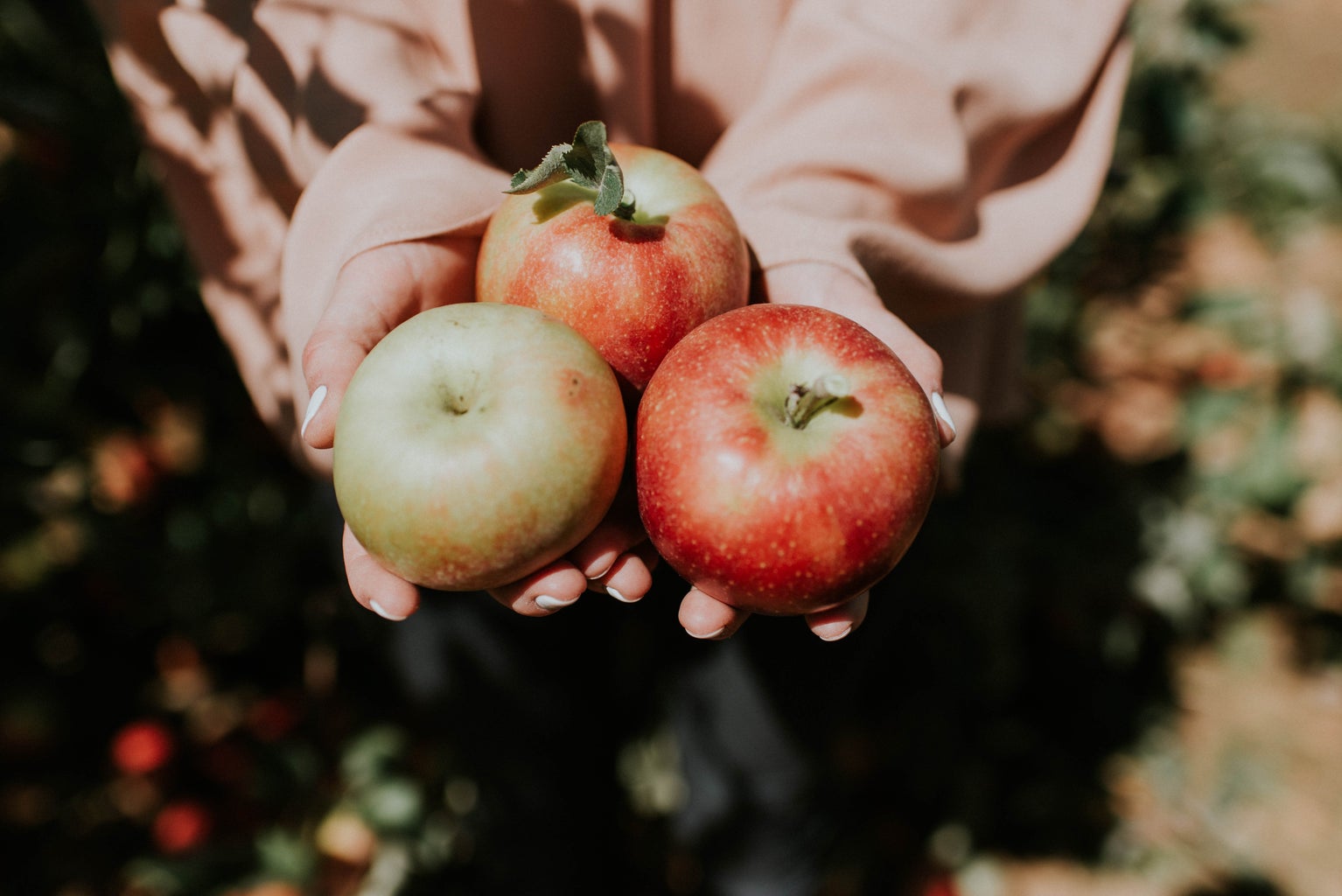Once again, autumn is among us. School has resumed, the leaves have started to shift colours, and that can only mean that it’s officially apple season.
Sure, the big fall craze is usually set aside for pumpkin spice, but I thought it was time to celebrate our good friend, the apple, who is so overlooked in its finest season and actually has a surprising number of health benefits.
I know what you’re thinking: duh, it’s fresh produce, it’s supposed to be good for you. Or maybe you’re a full-on disbeliever in the abilities of the forbidden fruit- remember Snow White? Well let me tell you, that was just poor judgement in people, not in food.
You probably already know that apples are a source of fibre, but do you know all that fibre does for your body? Fibre makes you feel full for longer, hence the connection to fruits and weight loss or weight management (because you will eat less when you’re full… theoretically), but there’s more to it than that.
According to the Mayo Clinic, fibre lowers cholesterol, helps control blood sugar, regulates sleep apnea, and normalizes bowel health. These benefits can significantly reduce the risk of having high blood pressure, hemorrhoid development, constipation, and even reduce the likelihood of developing type 2 diabetes.

Another gem found in apples is something called quercetin, which according to the American Journal of Clinical Nutrition, lowers the risk of chronic health diseases such as asthma, cancer, and heart disease, among others. Studies have even been able to link quercetin to brain protection, preventing possible damage from oxidative stress, and possible protection against Alzheimer’s Disease.
Quercetin also has been found to boost the body’s immune system, so even if you have any scepticism about the other advantages it may possess, you’re still less likely to get sick, and more likely to fight illness. Not too many downsides to that.
Do the benefits of apples stop there though? Of course not. Some have even suggested that eating apples increases your lifespan. Not just because of the aforementioned health assists, but because of the antioxidant fisetin, which improves outcomes in stroke patients, prevents liver, kidney, musculoskeletal, lung, eye, haematological, metabolic and skin disorders, and aids the body after organ transplants, but actually acts an anti-ager.
Yes, you heard correctly. Fisetin actually counteracts sirtuins, which have been linked to the aging process in humans. This means you might be less frail, have reduced inflammation and in general have an extended life span.
So there you have it. If you still aren’t convinced to eat an apple here and there, then you’re a lost cause. Of course an apple can’t create a healthy lifestyle, but it’s somewhere to start.
And yes, while we all know “an apple a day keeps the doctor away,” remember to actually consult a professional healthcare provider when seeking medical advice – don’t just take my word for it!




